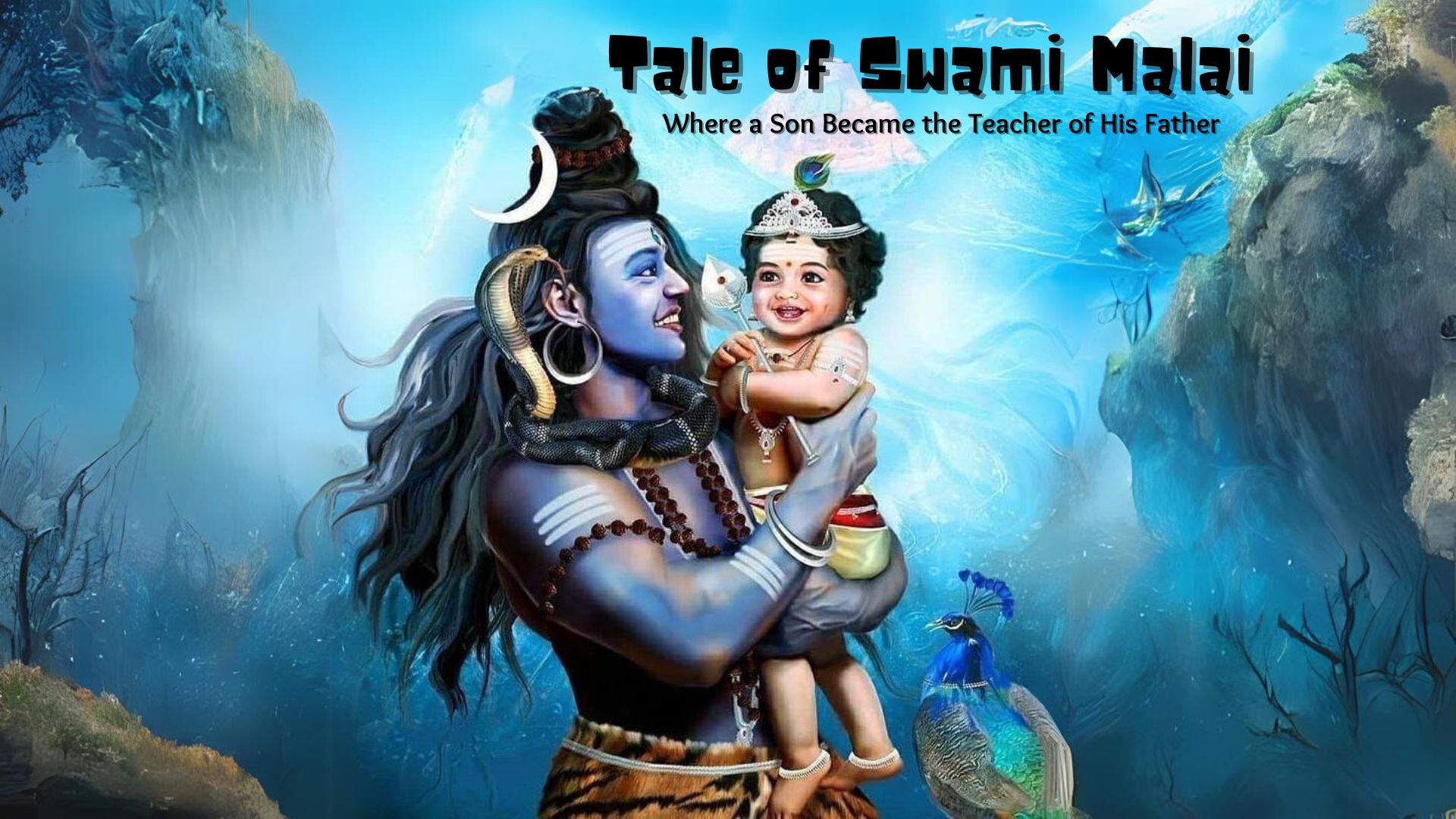
The narrative of Swaminathan and Swami Malai from the Tamil Kanda Puranam is a proof that Indian culture was knowledge driven and not hierarchy driven. Swami Malai, a modest hillock nestled near the quaint town of Kumbakonam in Tamil Nadu, holds a place of profound significance in the veneration of Lord Murugan. This narrative, with its rich tapestry of themes and symbolism, constitutes the sthala purana, or the mythological tale of the temple.
At the heart of this intriguing story lies a fascinating encounter between the youthful Murugan and Brahma, the revered creator deity of Hindu cosmology. Brahma, having paid obeisance to Lord Shiva in the sacred precincts of Mount Kailash, found himself halted on his return by the spirited Murugan, who was merrily engaged in play with his companions. However, Murugan's vexation was palpable, for Brahma, in all his divine grandeur, had neglected to accord due reverence to him, the son of the Almighty.
It was this perceived slight that spurred Murugan into action, and he resolved to impart a valuable lesson to Brahma, one that would remedy his apparent disdain. Stationing himself in Brahma's path as the latter stepped out of the celestial abode, Murugan posed a rather unusual question: He requested Brahma to introduce himself. Brahma, taken aback by the peculiar nature of the query, responded with an air of conceit, proclaiming himself as the progenitor of all life and the guardian of the sacred Vedas.
However, the audacity of Murugan's next question left Brahma disconcerted. Murugan inquired about the source of Brahma's creative prowess, to which the deity attributed his mastery over the Vedas. Seizing upon this revelation, Murugan posed an even more profound query: Could Brahma elucidate the profound significance of the primordial mantra 'AUM'? Brahma, his ego wounded by the audacious and curt questioning of a mere boy, retorted dismissively, asserting that he personified the very essence of 'AUM' and its profound meaning.
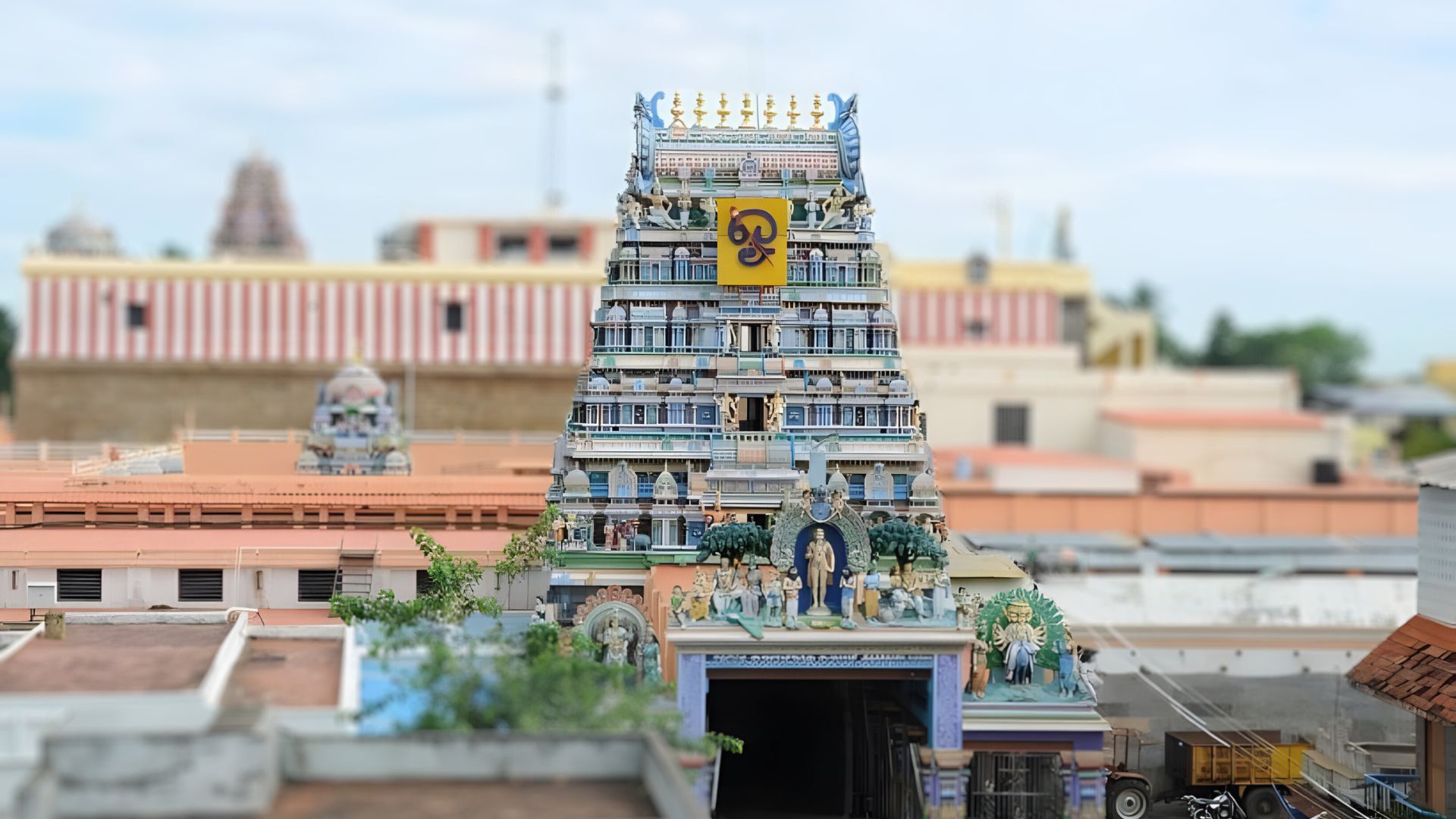
Yet, this response proved to be the genesis of an unforeseen turn of events. Brahma's assertion of primacy and his audacious dismissal of Murugan's inquiry had transgressed the boundaries of his role within the divine pantheon. Incensed by Brahma's arrogance, Murugan, in conjunction with his companions, resolved to imprison the creator god. However, this decision resulted in catastrophic consequences, for the incarceration of Brahma brought the entire cosmos to a grinding halt.
Swiftly recognizing the impending crisis, Murugan stepped in and assiduously assumed the mantle of creation. Brahma, meanwhile, languished in captivity, his creative powers held in abeyance. The absence of Brahma from his celestial duties did not escape the notice of the denizens of Devalok, who were disconcerted by the revelation that Murugan had incarcerated the great creator god. Perturbed by this development, the celestial deities and the venerable sages of the heavens beseeched Lord Shiva for intervention.
Shiva, the presiding deity of Mount Kailash and the father of Murugan, received their entreaties with a bemused demeanor. He marveled at how a youthful boy could detain the eminent creator deity. Intrigued by the unfolding events, Shiva summoned Murugan for a parley. Upon beholding his son, Shiva experienced a profound surge of paternal pride. With a tender embrace, he drew Murugan onto his lap and implored him to release Brahma from captivity.
Yet, Murugan remained resolute, undeterred by his father's placatory words. When Shiva discerned that his gentler approach had faltered, he was overcome by a surge of anger. Transitioning into his formidable wrathful aspect, he issued a stern mandate to his son, ordering Murugan to release Brahma without delay.
In compliance with his father's directive, Murugan, albeit grudgingly, ordered the liberation of Brahma. However, before acquiescing, he deemed it fitting to elucidate to his father the rationale that had precipitated Brahma's imprisonment in the first instance. Murugan contended that Brahma's ignorance of the meaning and significance of 'AUM' was an egregious failing, one that bore witness to the creator god's profound unawareness. This, in Murugan's estimation, amounted to an unpardonable dereliction of duty.
Intriguingly, Murugan's stance on the matter was a revelation to Shiva, who was astonished by his son's unwavering commitment to the sacred knowledge encapsulated within the mantra 'AUM.' In response, Shiva humbly beseeched his son to impart this sacred knowledge to him. Murugan, in a magnanimous gesture, agreed to fulfill his father's request, but with a caveat—Shiva would have to assume the role of his disciple.
And thus, an extraordinary reversal of roles ensued, whereby Shiva, the formidable god of the cosmos, became the eager student, and Murugan, his youthful son, assumed the exalted position of the teacher. In iconography associated with this profound episode, Murugan is often depicted seated on his father's lap, a visual embodiment of the inversion of traditional roles. Shiva, in this representation, is portrayed with his right hand poised over his mouth, while his head inclines toward his erudite son, a posture denoting profound respect for the knowledge being imparted.
It is essential to underscore that the transmission of sacred knowledge transpired with utmost secrecy, akin to the cryptic ritual of Brahmopadesh conducted during a thread ceremony to ensure that such knowledge does not reach unworthy ears. In this unique scenario, the unconventional aspect lies in the fact that the teacher, though a boy of diminutive stature, compels the older student to stoop down, thereby positioning himself to receive the sacred wisdom whispered into his ears.
While the tale of Swami Malai's episode elucidates that Murugan was seated on Shiva's lap, certain iconographic depictions, likely affiliated with the Murugan cult, highlight Shiva's demeanor as explicitly subservient. In these representations, Shiva stands with a body bent in reverence, hands placed reverently over his lips, thus underscoring his profound respect for his son Murugan. In these depictions, Murugan is portrayed seated with his left hand gripping his divine spear, the Vel, while his right hand assumes the vitarka mudra—a symbolic gesture where the thumb and index finger touch to signify teaching or instruction.
To a certain extent, this narrative finds a parallel in the iconography of Dakshinamurthy, where Shiva assumes the form of a youthful guru imparting transcendent knowledge to students considerably senior in age. Nevertheless, what distinguishes the Swami Malai narrative is the remarkable fact that, in this instance, the student is none other than Shiva himself, and the teacher is his very own son, Murugan. This unconventional dynamic challenges established conventions in a society where tradition typically designates the father as the primary guru for his son.
In essence, the story of Swami Malai
serves as a poignant illustration of the inversion of roles traditionally ascribed to a father and son. Indeed, the deity is aptly named Swaminathan, signifying the 'father's teacher,' a nomenclature that encapsulates the extraordinary interchange of wisdom between a father and his son. This narrative offers profound insights into the complexities and nuances of familial relationships within the framework of divine mythology, where even the gods themselves are not exempt from the lessons of humility and the pursuit of knowledge.
NEXT ARTICLE
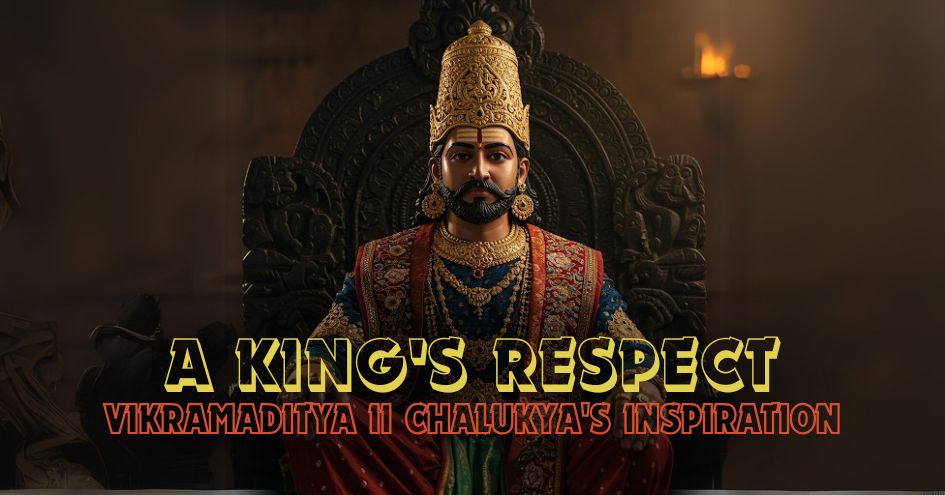
Indian History is rife with conflict between kings for power, territory and regional supremacy. We have seen instances where kings have made it a poin...
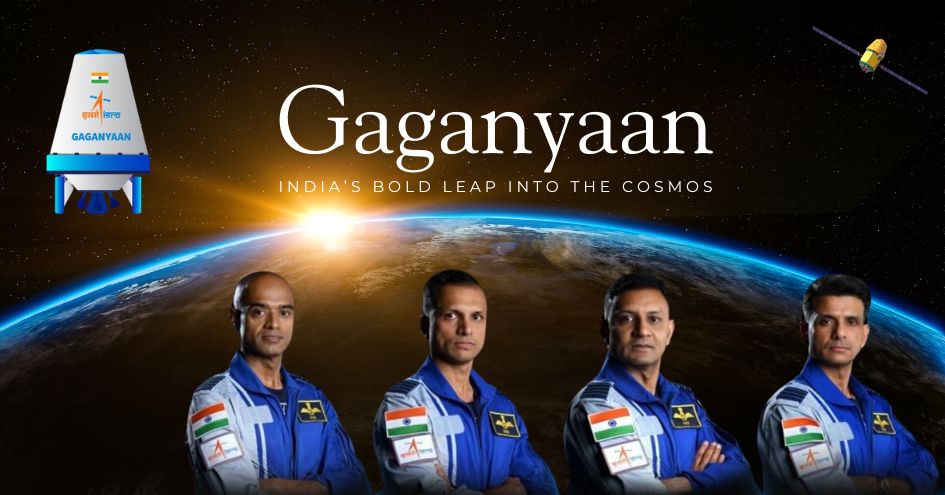
"Saare Jahaan Se Accha, Hindustan Hamara!"These immortal words, spoken by Squadron Leader Rakesh Sharma from the vast expanse of space in 1984, When t...
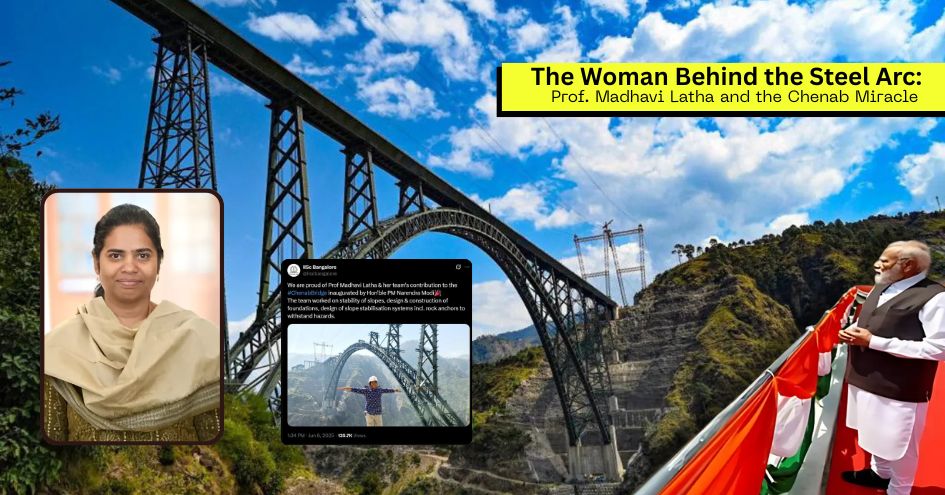
High in the rugged, unforgiving terrain of Jammu and Kashmir’s Reasi district, where the Chenab River slices through deep gorges and the Himalayas loo...